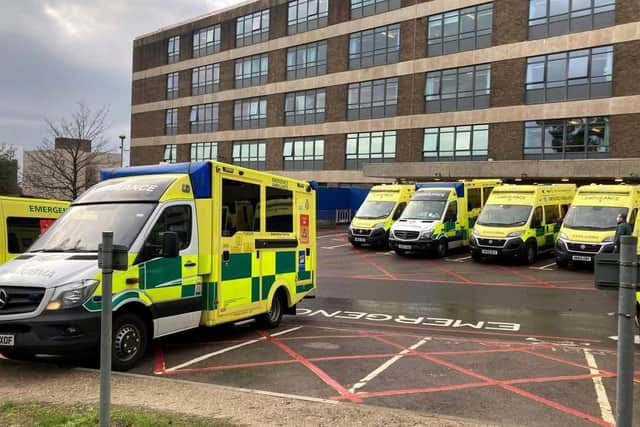South Central Ambulance Service missing life-saving response time targets with some emergencies waiting almost an hour for an ambulance
and live on Freeview channel 276
NHS figures have shown that none none of the 11 ambulance service trusts across the country met targets for reaching patients with life-threatening conditions within an average of seven minutes last month.
The data shows that South Central Ambulance Service (SCAS) dealt with 3,497 category one calls in June, which require an immediate response to a life threatening condition, such as cardiac or respiratory arrest.
Advertisement
Hide AdAdvertisement
Hide AdParamedics are expected to be on the scene within seven minutes – but the average response time was just shy of ten.


For category two calls – which include responding to strokes – the target is 18 minutes, but the average SCAS response was more than 43 minutes after a call.
Average response times for urgent issues, such as an uncomplicated diabetic issue requiring transport to hospital, saw SCAS teams arrive seven hours after an initial call – against a target time of two hours.
And eight hours and seventeen minutes was the average response time for non-urgent problems that require transportation to hospital, with a target time of two hours and twenty minutes.
Advertisement
Hide AdAdvertisement
Hide AdDr Tim Cooksley, president of the Society for Acute Medicine, said the national situation ‘remains unacceptable’.
He said: ‘Performance data now routinely illustrates that patients are continuing to experience overcrowding in acute care settings with flow throughout the system impaired.
‘Due to this, paramedics are then stuck unable to transfer their patients into hospitals and get back on the road, resulting in 999 patients being left at home for longer periods without clinical assessment and treatment, driving public concern that they may not get an ambulance at their time of most need.’
It was the busiest June ever for 999 calls, with almost 900,000 answered, and the number of life-threatening category 1 call-outs reaching a record high for the month of June, with 79,436 calls.
Advertisement
Hide AdAdvertisement
Hide AdEarlier this week, huge pressure on health services sparked critical incident warnings from Queen Alexandra Hospital and South Central Ambulance Service – the latest in a series of incidents facing the services in recent months.
